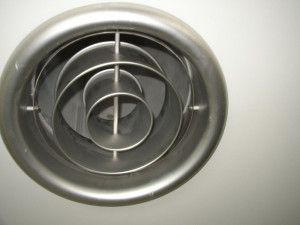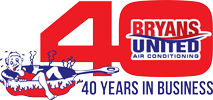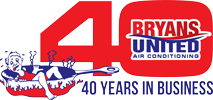
Popping Noises in the Ducts
Popping is one of the most common duct noises. Although it rarely indicates a serious problem, loud or frequent popping can be annoying, so it’s worth addressing. When your furnace fan blows warm air out of the air handler, that air fills the ducts and places pressure on the duct walls. This pressure can cause the walls to deform slightly and make noise.
The popping noises are especially likely to occur after professional duct cleaning. Dust and debris lining the inside of dirty ducts can reduce pressure, minimizing, if not preventing, popping. Your system may be quieter, but it’s also running less efficiently and not providing the kind of airflow for which it was designed. In a clean duct system, everything is working as it should, which means the correct air pressure is being reached.
Because of their two wide, weaker sides, rectangular ducts are more prone to popping than square ducts. Circular ducts can stand up to pressure the best, so they’re the least likely to pop.
Replacing rectangular ducts with square or round models should reduce, if not eliminate, noise. Using rectangular ducts with “breaks,” or creases, in the sides is another option. The creases strengthen the weakest sides of the ducts, making them less susceptible to popping.
The thickness of the duct walls also affects how much pressure they can withstand before popping. The lower the duct metal’s gauge number, the thicker and stronger it is. In most homes, 24 to 26 gauge ducts are used. However, in some cases, higher and weaker gauge ducts may have been used. As a result, upgrading to stronger ducts can be a solution to your noise problems.
Whistling From the Air Registers
This is another duct noise that can start up after duct cleaning. Like popping sounds, it’s caused by increased air pressure. The warm air your system produces leaves the registers at a higher speed, creating noise as it blows past the louvers of the air register covers.
During the winter, reducing fan speed is a possible solution. However, when you’re running the A/C, this isn’t practical because too low a fan speed can cause internal components to freeze.
Booming Noises from the Furnace
While most duct noises are harmless, furnace noises are more likely to indicate a potentially dangerous problem. A boom that occurs shortly after your furnace kicks on is one of those noises. While it doesn’t mean your system is on the verge of a breakdown, it does suggest there’s a problem.
The booming noise may be caused by a delayed ignition. Your furnace burns fuel and creates heat in an area known as the burner assembly. Normally, the system releases natural gas or fuel, ignites from the pilot light and fires the burners almost instantly. With use, however, the burners become dirty or rusted and can’t fire as quickly as they should.
Dirty or damaged burners can take several seconds or even as long as a minute to ignite. During this time, the system continues to release natural gas, allowing gas to build up. When the burners finally do ignite, they rapidly burn a large amount of fuel, causing an explosive booming noise. Repeated explosive ignitions can eventually crack the heat exchanger, so don’t ignore this noise.
If you suspect this is what’s causing your furnace to make noises, you can double check by watching the furnace kick on. Ask someone to raise the thermostat while you stand a safe distance from the furnace. If you hear the click of the furnace kicking on and the boom several seconds later, your burners are probably dirty. In this case, calling in a professional to clean the burners will solve the problem.
Whether you’ve been hearing unusual duct noises or furnace noises, or you just need a little help maintaining your systems, contact Bryan’s United Air Conditioning. We serve homeowners around the New Orleans, Luling, Marrero, Harvey and St. Rose areas.
Image via Flickr

